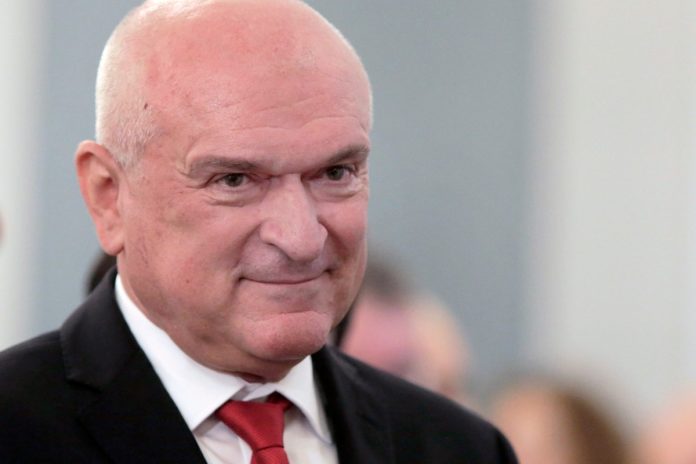On Tuesday, Bulgaria’s parliament formally approved a caretaker government that would run the EU member state until snap parliamentary and regular European Parliament elections due to be held on June 9, according to AP News.
Dimitar Glavchev, 60, became interim prime minister in a ceremony at the National Assembly, where his ministers were also sworn in. He was chosen by Bulgarian President Rumen Radev in accordance with recent constitutional amendments that limited the selection to just a few high-ranking government officials.
Glavchev, the head of the National Audit Office and a former legislator from the GERB party and speaker of parliament, said the ministers he chose for his interim cabinet were “equally distant from all political parties.”
The move came after the two largest political groups, GERB and reformists led by We Continue the Change, failed to form a coalition after nine months in power. Its collapse in March helped pave the way for early parliamentary elections, the sixth since April 2021, which were expected to exacerbate the political crisis and halt key reforms.
Controversy continued over some ministers in the interim government. Reformists complain that their opponents dominate the new cabinet and could use their position to unfairly win elections.
Reformist leader Kiril Petkov stated that the choice of Interior Minister Kalin Stoyanov in the interim government “is outrageous and offensive, a poor attempt to cover up the various dependencies in this cabinet.” Civic groups claim Stoyanov was responsible for vote buying in previous local elections.
Glavchev’s main task would be to arrange fair elections in the allegedly bribery-ridden Bulgaria of 6.5 million people, which statistically has the worst income inequality in the 27-member European Union.
Analysts predict that early elections in June are likely to create another fragmented parliament, leading to more political instability and dashing hopes of full admission to the EU’s visa-free Schengen and euro zone. It would also prevent the country from securing the release of billions of euros in EU recovery funds.
Opinion polls show that the upcoming elections could strengthen the presence of nationally oriented parties that exploit fears in Bulgaria and capitalise on misinformation.
